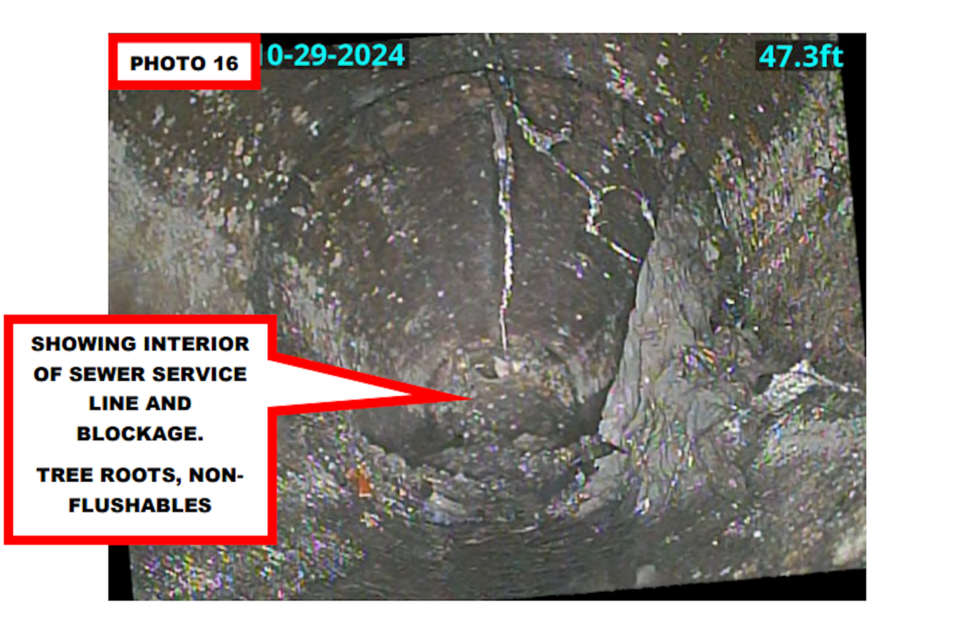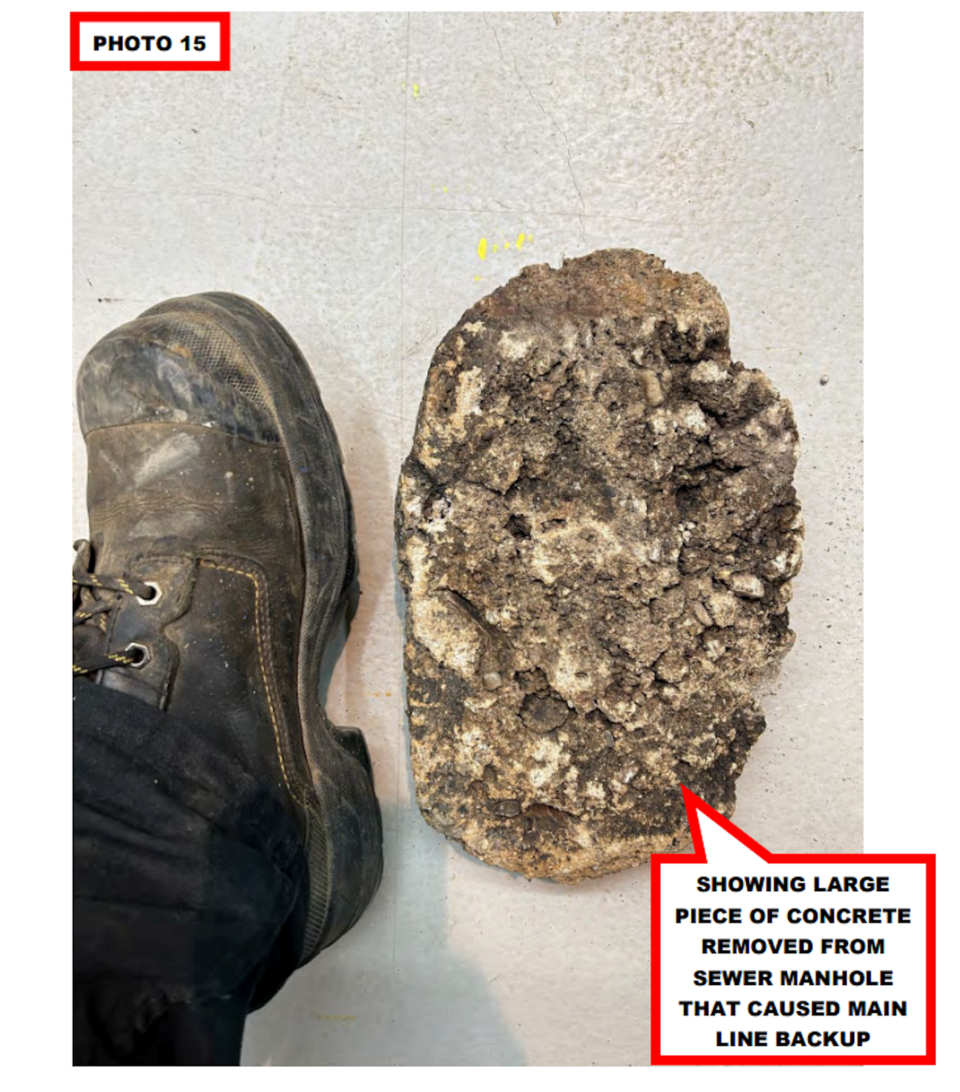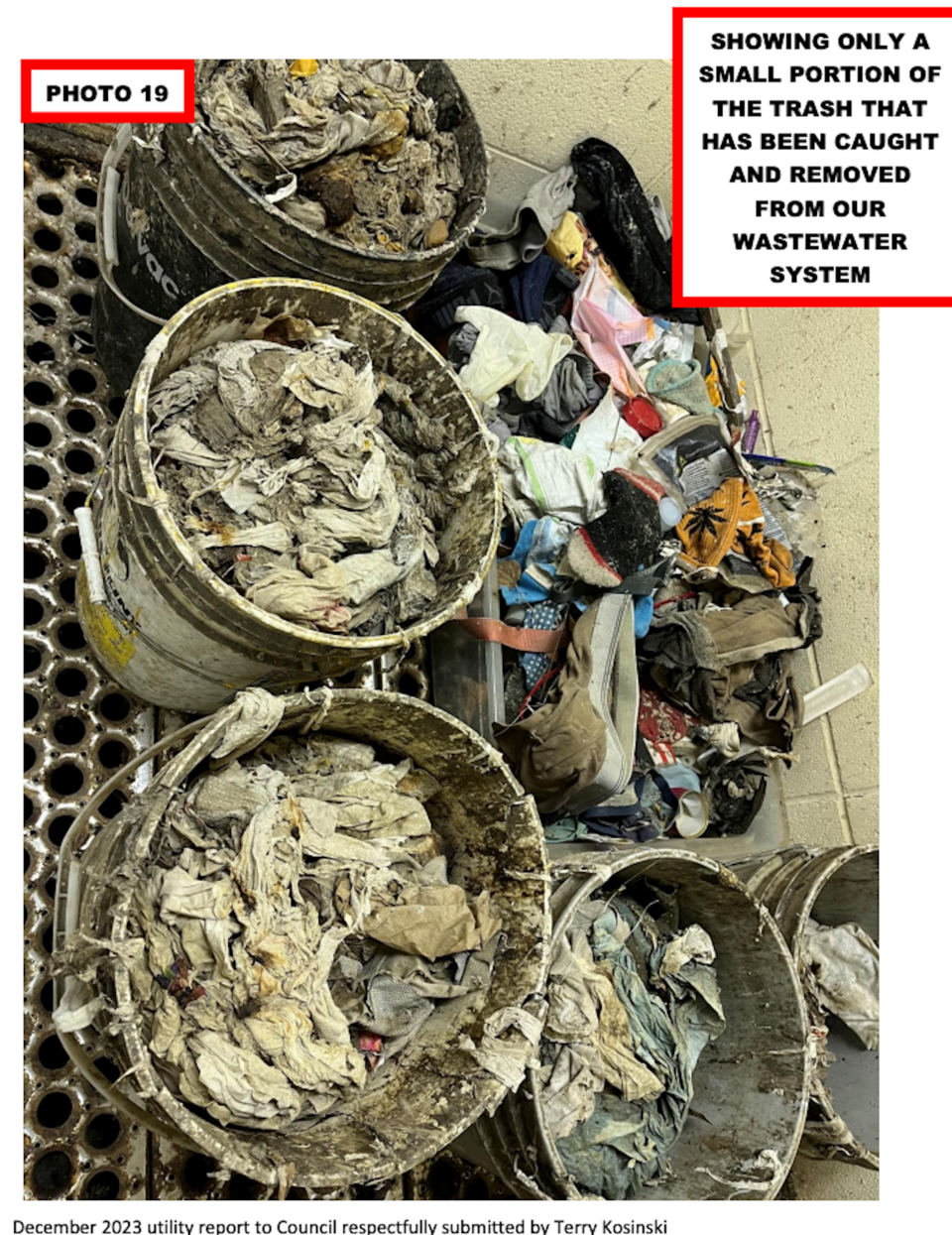ATHABASCA — The Town of Athabasca’s utility staff is asking residents not to flush garbage down the toilet — again.
“We’ve really beat this topic to death,” Terry Kosinski, utilities supervisor, told councillors during the Nov. 5 meeting. “I know it certainly catches all of our attention, but we’ll just keep trying, keep putting it out there.”
Currently, utilities staff clean the trash racks at both the main sewage lift station and the wastewater treatment plant twice a day, even coming in on Saturdays and Sundays for single cleans.
“If we did a late cleaning on Friday evening, it ain’t gonna make Monday, there’s no way,” Kosinski said. “If you left it two days over the weekend, the racks are going to plug up, we’re going to overflow, and it’s going to cause us other grief by trash getting to where we don’t want it to be.”
In 2023, 8,010 pounds (lbs) of garbage were removed from the wastewater collection system, up from the 5,900 lbs removed in 2022. In 2021, that number was 5,350 lbs. While the total weight of garbage collected over 2024 won’t be available until January, Kosinski said he’s confident the scale will show a similar, or higher, haul than last year.
Common items recovered from the racks include ordinary toiletries like menstrual products, sanitary wipes, shop towels, plastic packaging, toothbrushes and Q-Tips, but condoms, hypodermic needles, single-use rubber gloves and even clothing have been retrieved.
“It’s coming from users of our wastewater system who don’t fully understand (or care to respect) the complex workings of a municipal sewage system,” wrote Kosinski in a Nov. 13 email.
“The trash one carelessly flushes doesn’t mean that it ‘magically disappears’ never to be seen again. The flush is just the beginning of a long journey through the collection lines and treatment system. Trash does not belong in our wastewater system. I cannot stress that statement enough.”
Garbage build-up in the wastewater system can cause blockages that lead to short-term issues like sewer backup, but also impacts elements of the system over time in big and costly ways.
Sewage pumps, moving parts like valves, and electrical equipment are damaged by garbage, as is the quality of effluent—treated wastewater ready to be released into the Athabasca River. Wastewater operators must adhere to strict effluent quality regulations set by both provincial and federal governments.
Costs of repairing the damage done by garbage increase the operational expenses for the wastewater department, funded directly with taxpayer dollars from residents. Kosinski said these dollars would be better spent on much-needed replacements and upgrades rather than repairs.
“If we don’t shit in our garbage cans, then why do we throw trash in our toilets?” wrote Kosinski. “After 18 years of removing garbage from our sewer every day, it has gotten a little old. Just stop and put trash in the trash can. Simple, I thought?”

Infrastructure updates
Councillors had lots of additional questions for Kosinski unrelated to the flushing of garbage, but equally as important to the provision of utility services.
His October report featured photos of two sections of the University tunnel water main pipe showing “significant corrosion,” which garnered attention from former public works head Mayor Rob Balay.
The department will be keeping close watch on the main, and Kosinski advised creating a plan for repairs before emergency measures are needed would be a wise way to proceed.
“I don’t like to think that 1980’s or mid ‘80’s is that old, but I guess it is,” joked Kosinski, garnering laughs from around the table. “We keep our eyes open; we’ll plan for a way to attack it.”
Manholes are also an area of maintenance concern. On October 23, two sewer manholes were near overflowing, and following a flush, large pieces of debris from the walls of the manhole were found to be obstructing the entrance to the main line.

Although the incident was the first of such a degree, Kosinski said many of the manholes around town are in various states of deterioration, depending on location.
“Whether it be concrete spincasting of manholes, relining via CIPP (cured-in-place-pipe), or full replacement, we must not lose focus of what is an essential utility and service that must be provided to our town,” wrote Kosinski in his report to council.
Councillors also asked if the pipe fractures discovered in the main sewer line need to be repaired immediately; a question he said was difficult to answer.
“I think there’s probably a lot of that, and I bring it to your attention just to show you hey look, stuff doesn’t last forever, this is some of the things we’re up against. These are the reasons why it’s important to make investments when we can, where we can, put it in the right places.”



